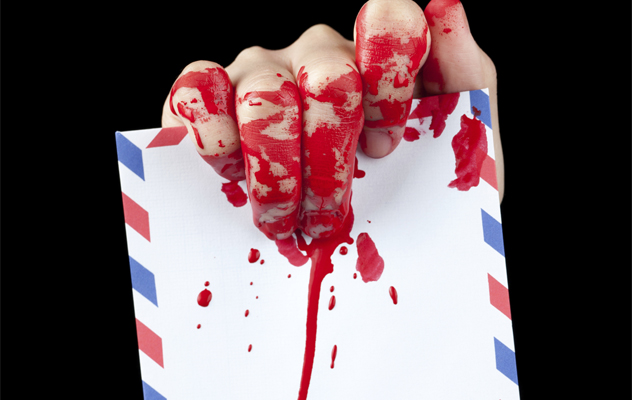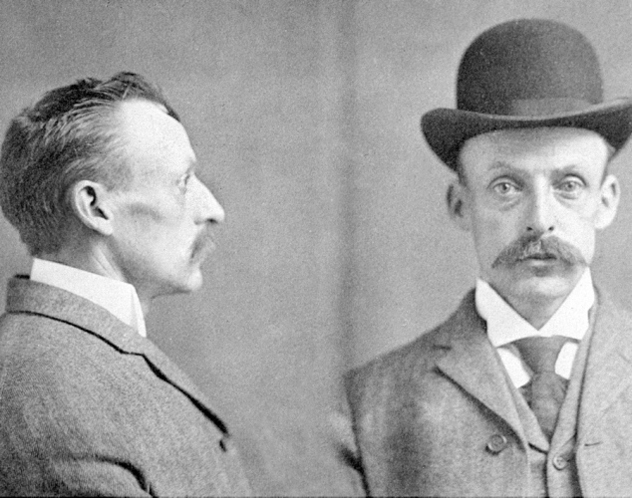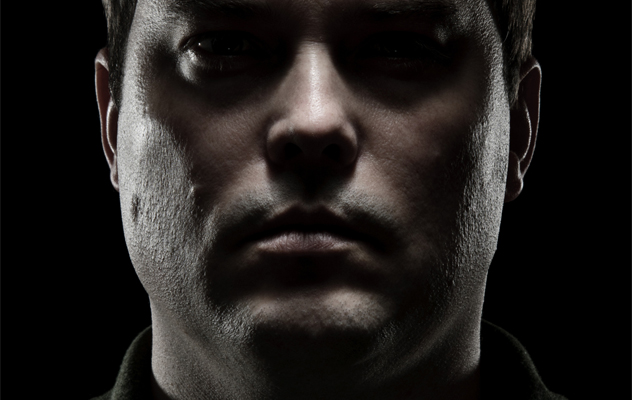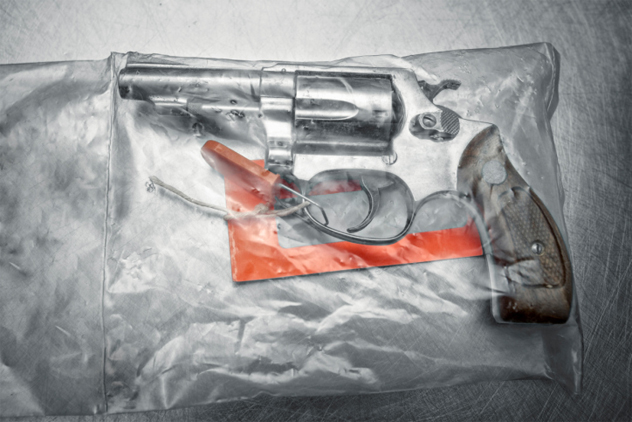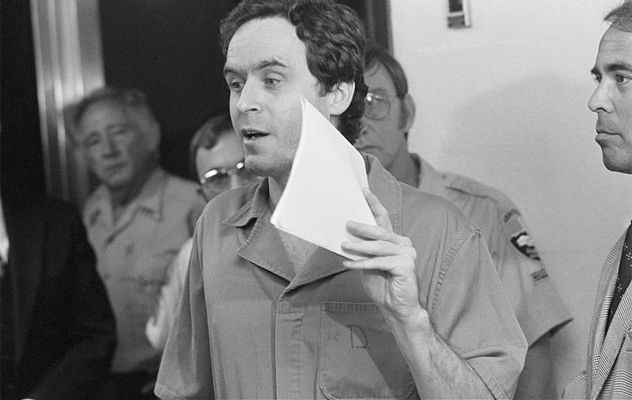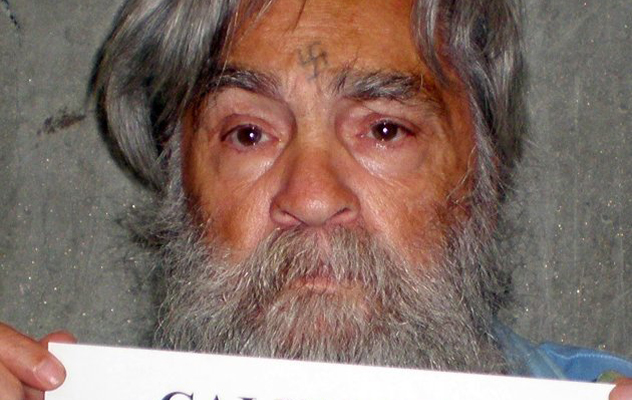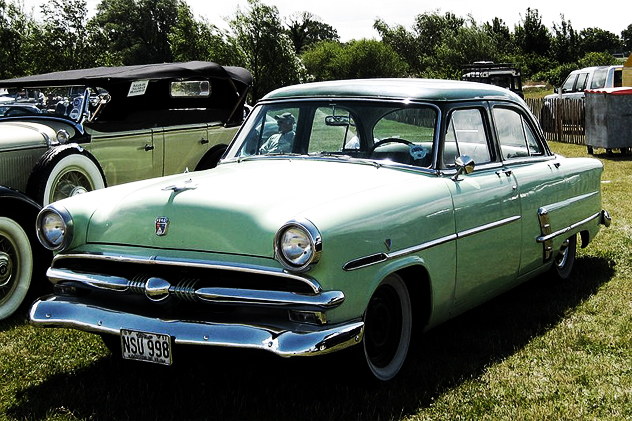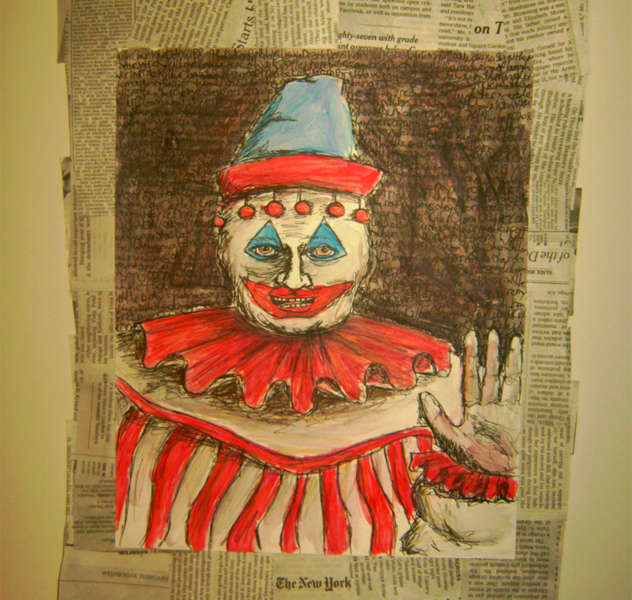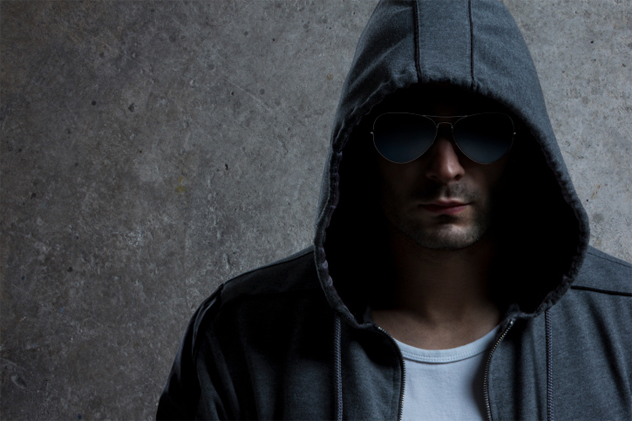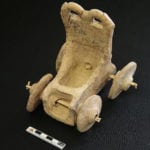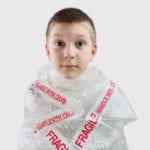10 The BTK Envelopes
Dennis Rader is better known as the BTK killer—an American serial killer who murdered 10 people between 1974 and 1991 in the state of Kansas. The acronym BTK stands for “Bind, Torture, Kill”—the signature Rader used to sign the letters he sent to police to taunt them. It also happened to be the method of murder he preferred. It was these letters that would lead to his eventual capture in 2005, but the legacy of Rader lives on. Within five years of his sentencing, several of Rader’s possessions were selling on various murderabilia websites. One item was an envelope containing Rader’s drawing of “Factor X”—the creature who apparently made Rader kill. The drawing was on sale for $3,000. Or, alternatively, they could purchase an envelope without the drawing (but still licked by Rader) for just $325. For a more modest fee of $40, Rader’s fans could buy a sample of dirt from one of his former houses.
9 Albert Fish’s Autograph
Albert Fish had many names: “Ham and Eggs,” “The Boogey Man,” “The Gray Man,” “The Werewolf of Wysteria,” “The Brooklyn Vampire”—the list goes on and on. He was arrested for the murder of 10-year-old Grace Budd in 1934 after sending a letter to the girl’s family detailing why and how he killed her. If you want to sleep tonight, don’t read the letter at that link; it doesn’t make great bedtime reading. Fish’s crimes are right up there with the most shocking acts you’re likely to ever come across in your life. But the man who murdered—and ate—several children between 1924 and 1934 also had many admirers. As a testament to this, Albert Fish’s autograph was bought for $30,000 from a murderabilia website in 2010.
8 The Kray Brothers’ Mug Shots
Ronnie and Reggie Kray are two of the most notorious gangsters in the world. The twin brothers ran a gang in London’s East End throughout the 1950s and 1960s until their eventual incarceration in 1969. Over the years, the British public’s morbid fascination with the Krays and their crime spree has manifested itself through newspaper headlines, TV documentaries, and various books. But in 2009, the world’s fascination with the Krays was put to the test when several items of Kray murderabilia went up for sale at an auction house called Mullocks. The main sale was the two original mug shots of the twins from when they were just 18 years old. The mug shots sold for £7,500 (about $12,000). Other items that have gone on sale over the years include a pair of boxing gloves given to Reggie by the famous criminal Charles Bronson, several pieces of artwork painted by the twins, and letters shedding light on the scandalous affair between Ronnie Kray and Lord Boothby. There’s even a Twitter feed for charting the sale of specific Kray memorabilia.
7 The Serial Killer Trivia Game
Players can take the role of many of the serial killers mentioned on this list, and the game works just like any other—players roll a die (no pun intended), move their pieces around the board, and answer questions. A correct answer will result in a player claiming a victim. Tiny little plastic babies, color-coded to each player’s piece, are an example of the victims players can claim. The game’s creator has stated that the board game is a work of art.
6 Jack Ruby’s Colt Cobra
When Jack Ruby shot Lee Harvey Oswald, the world was changed forever. Instead of answers to the questions surrounding JFK’s death, we were just left with more questions—questions that will probably never be truly resolved. But since that fateful day, Ruby’s snub-nosed .38 caliber Colt Cobra has lived a quiet life, passing from owner to owner in escalating deals. In 1960, Ruby bought the Colt Cobra for $62.50 in Dallas at Ray’s Sporting Goods. Ruby was a regular; he was known as Sparky because he always had one of his many guns strapped to his hip. Three years later, Ruby would use the gun to shoot and kill JFK’s alleged assassin. Dallas Police Captain L.C. Graves took the gun from Ruby, slapped the evidence tag “State’s Exhibit No. 6” on it, and put it in storage, where it stayed until Ruby’s death in 1967. What followed was a bitter feud between Ruby’s lawyer and his brother over who had rightful ownership of the gun. The argument finally ended in August 1991 when a Texas judge ruled in favor of Earl Ruby. Deeply in debt, Earl Ruby immediately decided to sell the gun. This time the venue was Manhattan and the gun was sold for $220,000, including a $20,000 commission for the auctioneer. Despite the buyer trying to disguise his identity as a collector named Fred Roman, he was eventually outed as Anthony Pugliese III, a real estate developer from Miami. Pugliese was a clever chap and made his money back by selling bullets he’d fired from the gun for $1,000 a pop. After 17 years, Pugliese decided he’d fired his souvenir enough, and in March 2008 he sold it for an unknown figure in excess of $2 million at the Pugliese Pop Culture Collection auction in Las Vegas—alongside a pair of Andy Warhol’s sunglasses and two Superman capes worn by Christopher Reeve in the Superman movies.
5 Ted Bundy’s Christmas Card
Theodore Bundy didn’t look like your typical serial killer; by all accounts, he was a pretty handsome fellow. By the time of his execution, he had admitted to killing 28 women throughout the 1970s. The real figure, however, could be as high as 100. Bundy raped, strangled, and committed necrophilia on many of his victims, and yet he remains one of the most “popular” serial killers in the world. On several murderabilia websites, one of the more bizarre items on sale is a Christmas card signed by Bundy. One card from December 19, 1988 is signed “God Bless you, Peace Ted.” The card is for sale for $4,999.99. A similar card is for sale on another site for $3,000. Dated December 20, 1988, the card is made even creepier by the fact that it is postmarked exactly one month and four days before Bundy’s execution in the electric chair.
4 Charles Manson’s Lock of Hair
The killing spree committed by Manson’s “family” during the summer of 1969 is perhaps the most famous killing spree of all time—not to mention the most harrowing. Manson’s followers killed nine people, including Sharon Tate, the eight-and-a-half-month-pregnant wife of Polish director Roman Polanski. The acts of violence made Charles Manson famous, and the profiteering from the event hasn’t been subtle—this includes the 2003 film, the countless “exclusive” interviews with family members, the nonfiction books—not to mention biographies by Charles Watson, one of the main killers, as well as Manson himself. But as with so many of the killers on this list, it’s not the mass-produced items which fetch the best prices. Anyone can walk into a bookstore and buy a copy of a book telling the tale of Manson’s life. But not as many people can own a lock of his hair. Manson’s locks are regularly up for sale—in fact, while this list was being written, one such lock was in the process of being sold for $800.
3 Ed Gein’s Ford Sedan
You’ve got to be a big fan of a serial killer if you’re going to buy his car, right? This isn’t some trinket the killer kept in his pocket or on the bookshelf in the room where he slept as a kid—no, this is the car Ed Gein used to kidnap his two victims on his way to becoming possibly the most influential killer of all time. Ed Gein didn’t just kill people; he would make totems out of his victims’ bodies, as well as the bodies of people he dug up from the local graveyard. Most of these bodies were, at one point, in Gein’s Sedan. Among other totems, he made a lampshade from human skin and bowls from human skulls. Although Gein was only convicted of killing one woman, he was the inspiration for many modern horror films and their characters—such as Norman Bates from Hitchcock’s Psycho and Leatherface from The Texas Chainsaw Massacre. In 1958, after Gein was arrested for his crimes, his car was sold at an auction for $760. The buyer was local carnival sideshow operator Bunny Gibbons, who would later charge visitors 25¢ to see the “Ed Gein Ghoul Car” at the Outgamie County Fair in Wisconsin. The car was displayed under a sign saying “See the car that hauled the dead from their graves.” Eventually, after complaints, the attraction was banned by the sheriff and the car disappeared without a trace.
2 John Wayne Gacy’s Artwork
John Wayne Gacy, the Killer Clown, tortured and murdered 33 young men between 1972 and 1978. Everyone thinks Pennywise the Clown from Stephen King’s It is pretty scary, but fiction will never compare to the real-life horror of John Wayne Gacy. And his artwork is just as odd as the man himself. In 2011, 17 years after his execution in 1994, the Arts Factory gallery in Las Vegas exhibited some of his artwork under the title “Multiples: The Artwork of John Wayne Gacy.” The artwork—all of which was painted during Gacy’s time on death row—included portraits of Elvis, the Seven Dwarfs, Hitler, and Charles Manson. They were offered for sale for between $2,000 and $12,000. The gallery announced that they would give a percentage of the proceedings from the sales to the National Center for Victims of Crime. However, the Victims of Crime organization refused to take the money. You can view examples of his work, including various creepy clown pictures and a Mickey Mouse sketch, on the official Multiples website. Some collectors even famously bought up a large number of the paintings simply to burn them, arguing that the entire exercise was disrespectful to the victims and their families.
1 The Unabomber’s Typewriter
The items left behind by Ted Kaczynski when he was arrested in 1996 make up the most high-profile murderabilia auction to date. The items on sale in the 2011 online auction included: Kaczynski’s hoodie, sunglasses, Smith Corona typewriter, hand-bowed wood saw, letters to his Aunt Frida, and his infamous handwritten manifesto. Known as the Unabomber, Kaczynski’s mail bombs killed three people and injured over 20 between 1978 and 1995. Unlike so many of the items on this list that have been sold purely for profiteering purposes, the funds raised from the Unabomber auction were passed on to the victims’ families. The hoodie and aviator sunglasses out-sold all the other items, going for well over $20,000, and the handwritten manifesto sold for over $17,000. The manifesto is one of the most amazing documents in modern times because Kaczynski demanded it be published in The Washington Post, the New York Times, and Penthouse in 1995 with the ultimatum that he would kill again if it went unpublished. But as a result of the publication, his brother, David Kaczynski, told the police that he thought his brother could be the Unabomber. Less than a year later, Kaczynski was arrested and charged.
